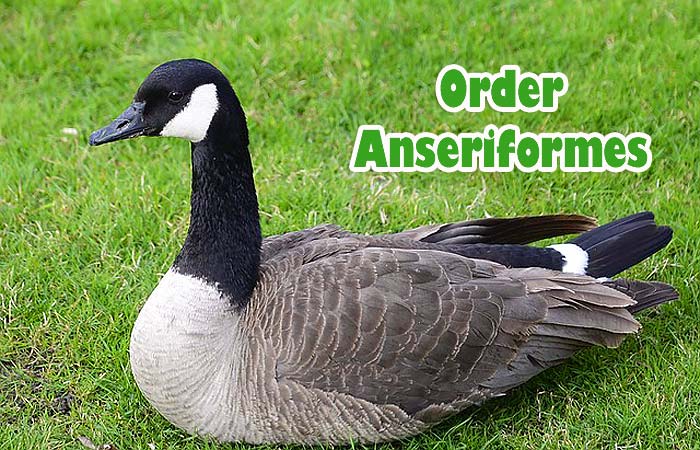
The bird species in this order are familiar to most – ducks, swans, and geese. There are about 160+ species in this bird order. There are 3 families in this order namely Anatidae (ducks, geese, swans), Anhimidae (screamers), and Anseranatidae (Magpie Goose). These birds are called waterfowl birds as they tend to live near freshwater ponds or water-resource areas.
Table of Contents
Waterfowl birds are found in almost every continent except Antarctica. These migratory birds are excellent swimmers and good flyers, capable of covering long distances during their migrations.
How to pronounce Anseriformes?
![]()
Order Anseriformes Characteristics
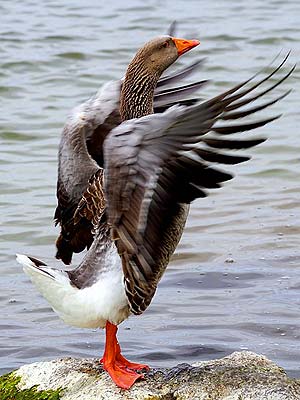 Let us see the main features that make these birds an order of their own:
Let us see the main features that make these birds an order of their own:
- The anseriform bill is the most recognizable feature: broad and somewhat flattened. Its shape can slightly vary depending on the diet of the particular species.
- Some waterfowl birds have bills with fringes composed of thin lamellae that can help filter food .
- The waterfowl have short, sturdy legs adapted for walking or swimming. The feet usually have webbing between the toes.
- These birds can vary in size depending on their habitat and diet: from 30 cm to 1.5 m.
- All of these birds have a prominent neck, from medium to long.
- The birds have varied coloring, from black, grey, and brown to brighter coloring in some species, like mandarin ducks.
- Migrating Anseriformes species have mighty wings adapted for long-distance flights. Migratory species are of great interest to the scientists, as it is somewhat of a mystery how do these birds manage to travel the same routes without mistake.
- Most of the species form groups that settle and feed together and often migrate together as well.
- As the name suggests. most waterfowl birds live near freshwater or marine sources and migrate yearly for breeding.
- Most species are monogamous, forming the same pair yearly.
- The female ducks and swans lay several eggs.
- The young hatchlings are well-developed and can usually see and walk almost immediately.
- The parents watch over their young, and they oversee their feeding, swimming, and flying.
- The young Anseriformes chicks hatch fully developed, able to see and follow their parents.
- The species that spend a lot of time swimming have legs with flattened bones and webbing.
- Most anseriformes feed on plants or their parts, such as leaves or seeds. Some of them can hunt for insects, plankton, or mollusks.
- Not only do waterfowl birds have many predators on land and in water, but they are also threatened by human hunters, for most of these species are popular as a game. Many Anseriformes species are threatened because of pollution and hunting.
Suggested Reading:
What Do Ducks Eat? Explore Duck Diets, Hunting & Eating Habits
Ducks inhibit various parts of the world, and they are mainly omnivorous. Explore what do ducks eat in detail by their types, hunting techniques, and more.
![]()
Waterfowl Bird Migration
![]()
Types of Waterfowl Birds
Here are some of the types of waterfowl birds from all 3 families in order Anseriformes.
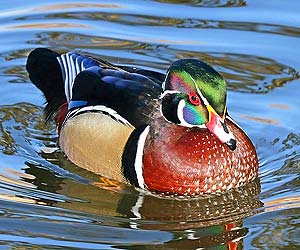 Wood Duck (Aix sponsa)
Wood Duck (Aix sponsa)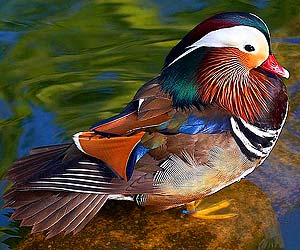 Mandarin Duck (Aix galericulata)
Mandarin Duck (Aix galericulata)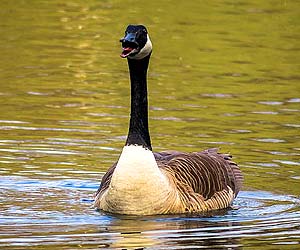 Canada Goose (Branta canadensis)
Canada Goose (Branta canadensis)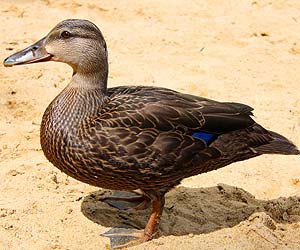 Black Duck (Anas rubripes)
Black Duck (Anas rubripes)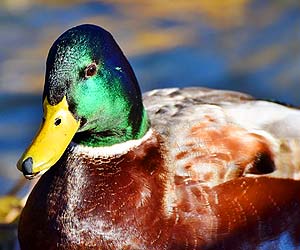 Mallard Wild Duck (Anas platyrhynchos)
Mallard Wild Duck (Anas platyrhynchos)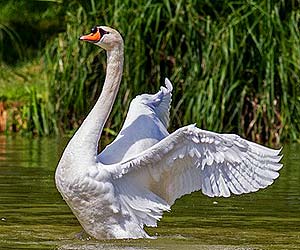 Mute Swan (Cygnus olor)
Mute Swan (Cygnus olor)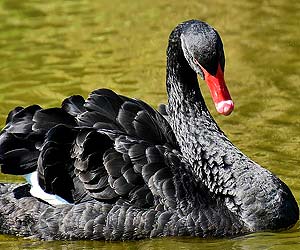 Black Swan (Cygnus atratus)
Black Swan (Cygnus atratus)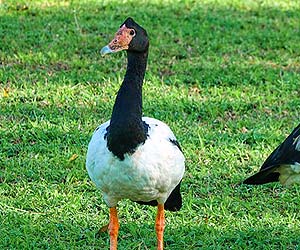 Magpie Goose (Anseranas semipalmata)
Magpie Goose (Anseranas semipalmata)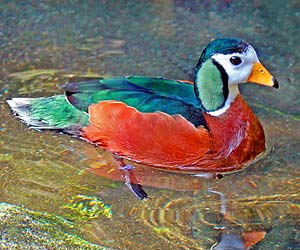 African Pygmy Goose (Nettapus auritus)
African Pygmy Goose (Nettapus auritus)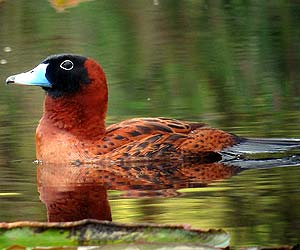 Masked Duck (Nomonyx dominicus)
Masked Duck (Nomonyx dominicus)Cite This Page
APA7MLA8Chicago
BioExplorer.net. (2025, December 26). Order Anseriformes / Waterfowl Birds. Bio Explorer. https://www.bioexplorer.net/order-anseriformes/.
BioExplorer.net. "Order Anseriformes / Waterfowl Birds" Bio Explorer, 26 December 2025, https://www.bioexplorer.net/order-anseriformes/.
BioExplorer.net. "Order Anseriformes / Waterfowl Birds" Bio Explorer, December 26 2025. https://www.bioexplorer.net/order-anseriformes/.












